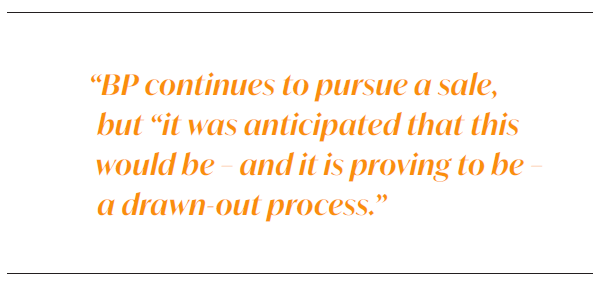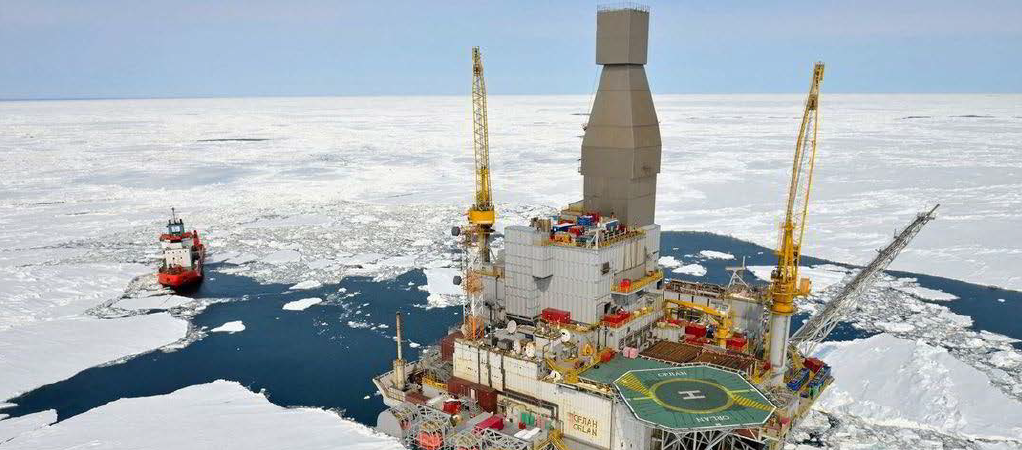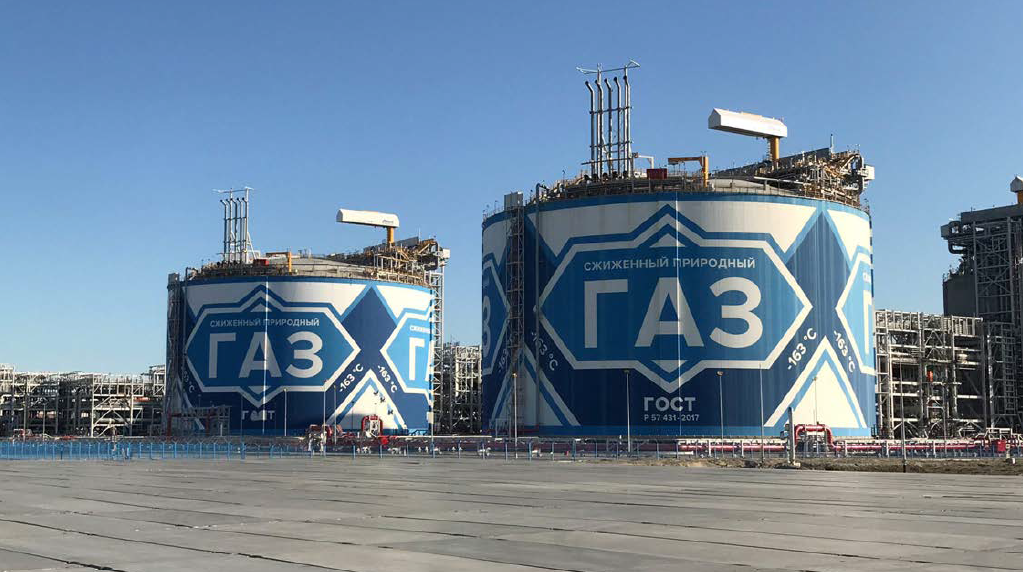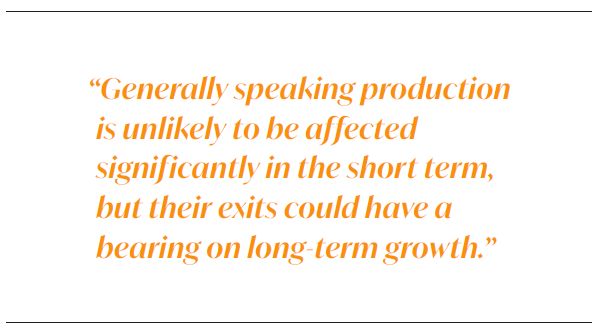Wintershall Dea follows Western peers in exiting Russia [Gas in Transition]
Germany’s Wintershall Dea became the latest Western oil and gas company to announce its departure from Russia in mid-January, citing its opposition to Moscow’s war in Ukraine and the impossibility of operating in the country. While others have already left, some are still in the process of wrapping up their operations, while others, for the time being, have only ruled out future Russian investments. It is worth looking at the progress that Western firms have made in scaling back their Russian exposure, and what impact their actions will have on future Russian oil and gas production.
BP
BP had the biggest footprint in the Russian upstream market among foreign majors prior to the war, and it was also the first to announce its exit from the country.
On February 27, only three days after the conflict in Ukraine started, BP’s board announced it would exit its 19.75% stake in Russia’s largest oil company Rosneft, along with all its other businesses in the country. Those included stakes in three key joint ventures with Rosneft – Taas-Yuryakh, Yermak-Neftegaz and Kharampur. BP’s directors immediately stood down from Rosneft’s board, and the company has since withdrawn its international staff from the country and exited from businesses such as lubricants and aviation.
The decision came at a significant cost. In the fourth quarter of 2021, Rosneft contributed 1.1mn barrels of oil equivalent/day to BP’s production – equivalent to a third of the total. This production also had a low cost, only $2.70/barrel for oil, which is well below BP’s internal target of $6/b by 2025. By dropping its Russian interests, the company also halved its reported oil and gas reserves.
Financially, BP booked a $24.4bn post-tax charge in its Q1 2022 to reflect its departure from Russia. It also took a $2bn hit to its reported annual earnings.
BP had initially sought to earn something from the sale of its Russian operations, but international sanctions and Russian regulations, including approvals needed from the government of any deal, has made the process difficult. According to its website, BP continues to pursue a sale, but “it was anticipated that this would be – and it is proving to be – a drawn-out process.”
Equinor
Norway’s Equinor in comparison had a minor presence in Russia, and therefore its withdrawal was relatively simple and uncostly.
Equinor announced it was leaving on February 28, and completed the process by transferring shares in all joint ventures to its partner, Rosneft, in May last year, and closing a deal to transfer its 30% interest in the Zarubezhneft-operated Kharyaga production-sharing agreement in September.
Equinor did not say whether it had received any proceeds in return for its share in the Kharyaga project. But it valued its assets in Russia at $1.2bn, and those assets only brought it 25,000 boe/d of output as of the end of 2021.
ExxonMobil
ExxonMobil’s withdrawal from Russia was abrupt. In mid-October last year it announced that its assets in the country – namely an operating stake in the Sakhalin-1 oil project in the Russian Far East – had been expropriated.
“With two decrees, the Russian government has unilaterally terminated our interest in Sakhalin-1 and the project has been transferred to a Russian operator,” the company said in a statement at the time.
Like BP and others, ExxonMobil announced it would pull out of Russia shortly after the war in Ukraine began. And like the others, it had likely been hoping to get some proceeds for its assets. But Russia’s government later passed a law that prevented the sale of its 30% stake in Sakhalin-1. Meanwhile its project partner Rosneft blamed the US major for causing a steep fall in Sakhalin-1 output, from a pre-war level of 220,000 b/d to only 10,000 b/d. This was because ExxonMobil had to declare a force majeure because of sanctions. Reuters reported in early January that production had been restored to close to its plateau level once more, citing sources.
ExxonMobil booked a $4.6bn impairment last April to reflect its decision to leave the country.
OMV
The reaction of Austria’s OMV to the war was more restrained. It issued a statement last March stating it would not pursue further investments in Russia, meaning that a potential deal to purchase stakes in Achimov blocks at Gazprom’s Urengoy field in Siberia was called off. It also initiated a strategic review of its 25% stake in Gazprom’s Yuzhno-Russkoye field, viewing a divestment or a simple exit as both options. As of mid-January this year, though, OMV said it had not yet reached a decision.
OMV booked a €2bn ($2.2bn) impairment to account for its Russian operations last year, including €1bn at Yuzhno-Russkoye and €1bn at Nord Stream 2.
Shell
Shell, prior to the war had an interest in the Gazprom-operated Sakhalin-2 LNG plant operated by Gazprom in the Far East, and a oil-focused joint venture in Western Siberia, Salym Petroleum, with Gazprom Neft, along with some exploration projects and a fuels business. When it decided to leave in March, it announced a $3.9bn impairment.
Last year Shell told its retail fuel and lubricants business to local oil producer Lukoil for an undisclosed sum. At Sakhalin-2, Shell walked away with nothing in September 2022 after Russian president Vladimir Putin signed a decree transfering the facility to a new operating company. At Salym Petroleum, a Moscow court satisfied a claim by Gazprom Neft to allow Shell to sell its 50% stake in the joint venture.
TotalEnergies
Unlike some of its peers, TotalEnergies said after the outbreak of war that it would only gradually wind down its operations in Russia and freeze investments.
In addition to its shares in Arctic LNG-2 and Yamal LNG, it also has a 19.4% stake in the operator of those projects, Novatek, a 49% holding in another Novatek gas project called Terneftegaz, and a 20% interest in Zarubezhneft’s Kharyaga joint venture. It argued that divesting these properties now would be counterproductive to the goal of ratcheting up economic pressure against Russia.
TotalEnergies sold its 20% stake in the Kharyaga oilfield and its 49% interest in Terneftegaz. But the French major has defended its decision to hold on to its stakes in the Yamal LNG and Arctic LNG-2 projects for the time being. It has argued that making such major divestments would only enrich Russia and could jeopardise European gas supply further.
While the 17mn metric ton/year Yamal LNG project is already operational, Arctic LNG-2 is not expected up and running until 2023. While Novatek insists the Arctic LNG-2 will remain on schedule, TotalEnergies said it would provide no further capital for such projects in Russia.
TotalEnergies announced more than $14bn in impairments relating to its Russian operations over the course of last year.
Wintershall Dea
Finally, Wintershall Dea announced an end to its Russian activities on January 17, stating that restrictions imposed by the government had made it impossible for it to operate in the country – namely presidential decrees that forced its joint ventures to cut the price of gas they charged Gazprom. Those joint ventures have been economically expropriated, it said.
Wintershall Dea's Russian business includes a 35% interest in the Yuzhno-Russkoye field. The company also co-owns two Achimov gas layer projects: Achimgaz and Achim Development.
The company booked a €5.3bn impairment to reflect its decision.
Impacts
The impact of the withdrawal of Western partners from Russian oil and gas projects is varied. But generally speaking production is unlikely to be affected significantly in the short term, but their exits could have a bearing on long-term growth.
Russian oil and gas producers have learned over the last 10-15 years to tap challenging Achimov and Jurassic deposits like those that Wintershall Dea was involved in, financial sources tell NGW. They could struggle without the expertise and technology of the likes of BP and Shell at mature Western Siberian projects, however.
While Rosneft has managed to bring Sakhalin-1 back to close to full capacity, sources say that the company could struggle in the longer term to maintain flow at the project’s challenging wells, although this obstacle could be overcome with a change in drilling strategy.
The importance of TotalEnergies’ involvement in Russian LNG will become less and less important with each successive project. But a bigger issue is the withdrawal of Western companies such as Germany’s Linde that were providing LNG liquefaction equipment, and France’s GTT that were supplying LNG storage tanks.
Novatek has developed its own liquefaction technology known as Arctic Cascade, and after initial issues during tests at a fourth train at Yamal LNG, it appears to be working well, sources say. It will be important to see whether Novatek can develop bigger Arctic Cascade trains.
At Salym Petroleum, Gazprom Neft has been focusing on learning how to tap the Bazhenov shale for years with domestic equipments, the sources say, and the lessons learned at the Achimov and Jurassic projects, including with the use of shale technologies such as horizontal drilling combined with multi-stage fracking, should provide a lot of overlap.
The Oxford Institute for Energy Studies noted in a report last year that there will be a greater impact on Russian oil and gas production in the medium term, “as new developments become more remote and the technology required to develop more complex fields is in shorter supply as Western oil companies and, perhaps more importantly, service companies end new investment and start to exit the country.”
Market forces will of course also determine future output, given developments such as the EU’s embargo on Russian oil and the bloc’s commitment to phase out Russian gas supply, forcing Russia to seek out more market share in Asia.



